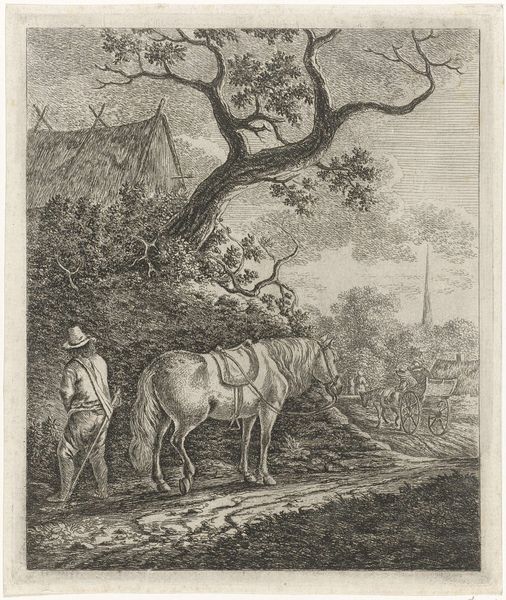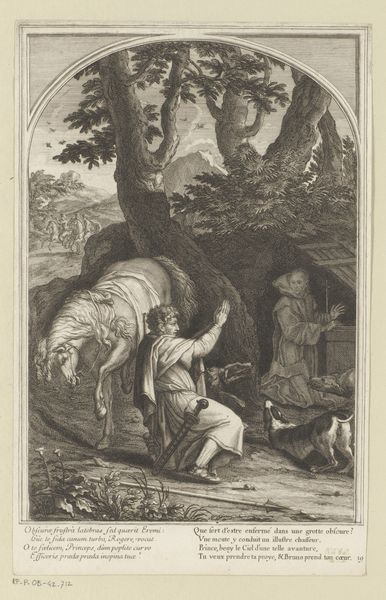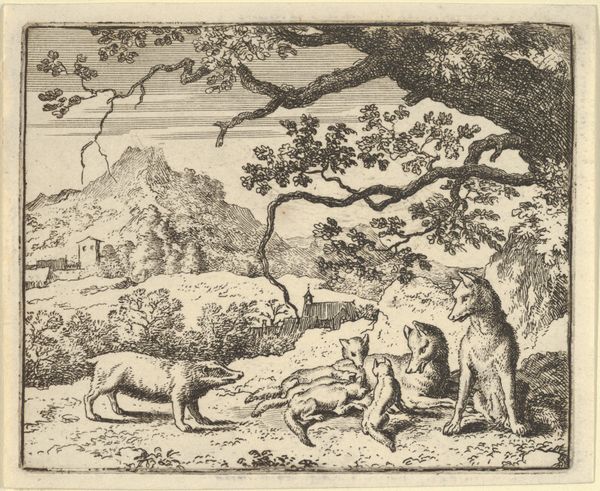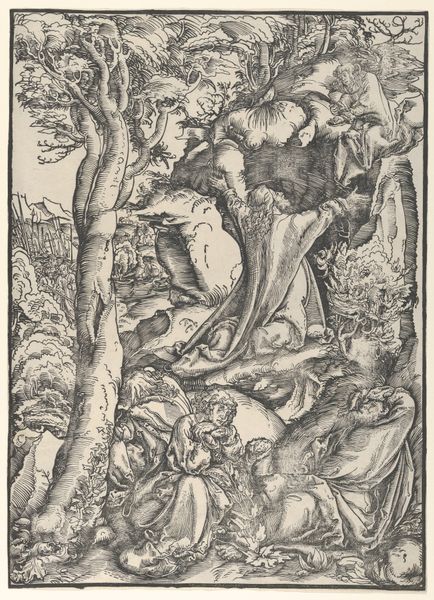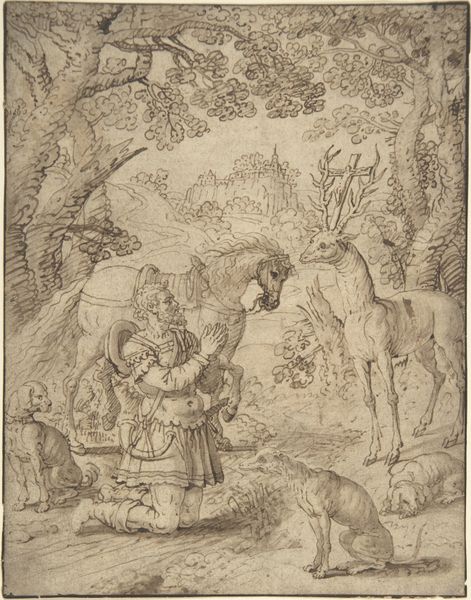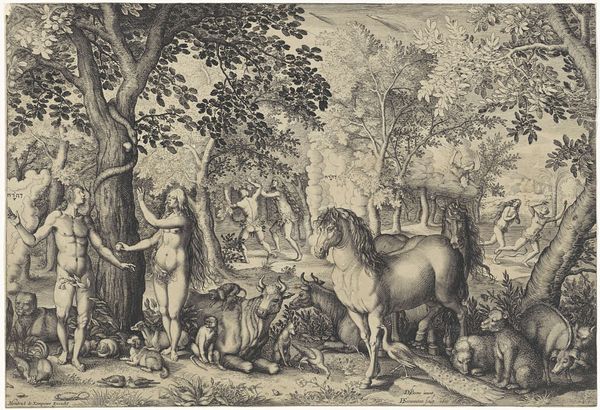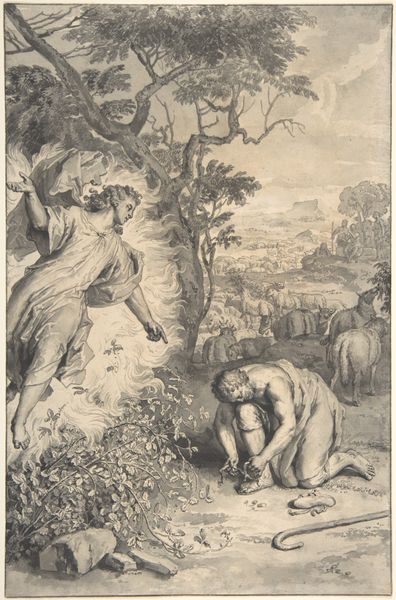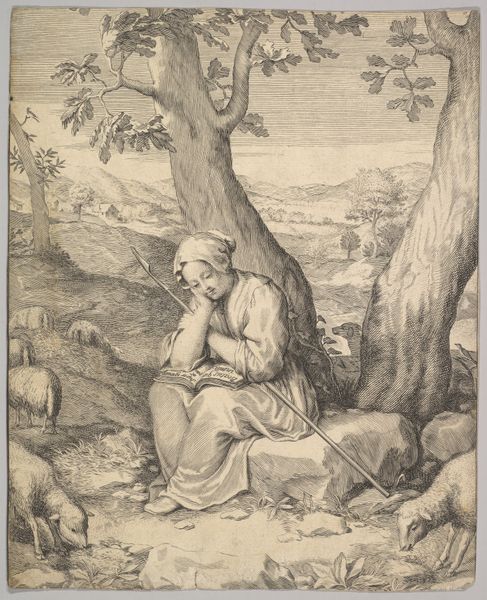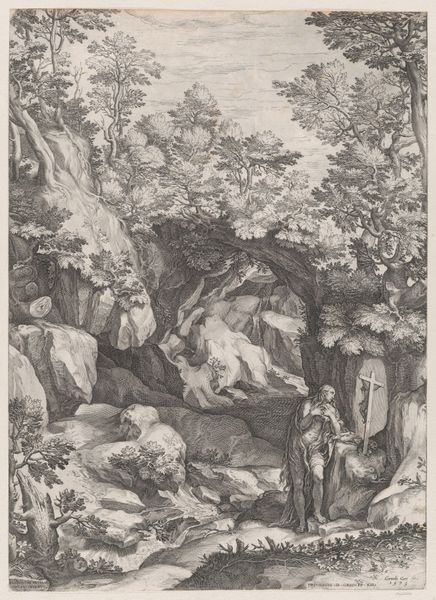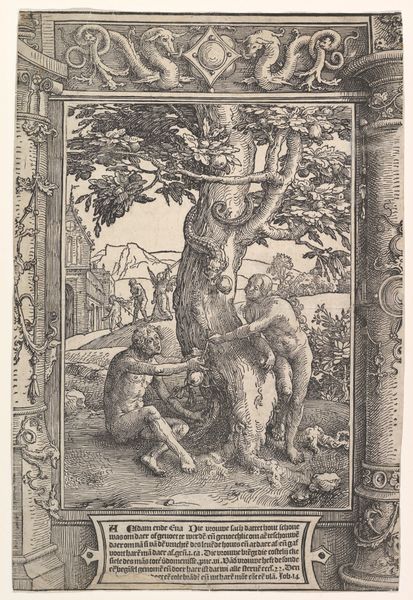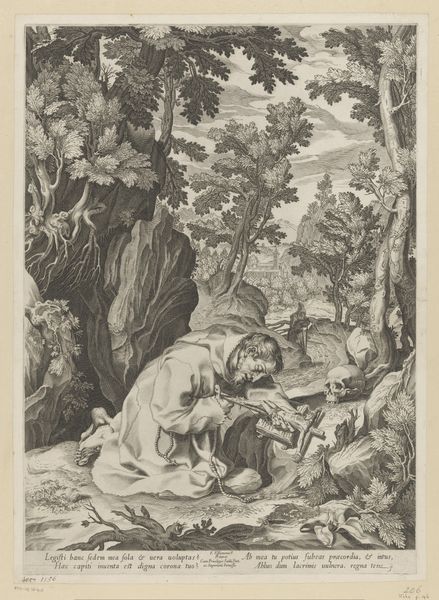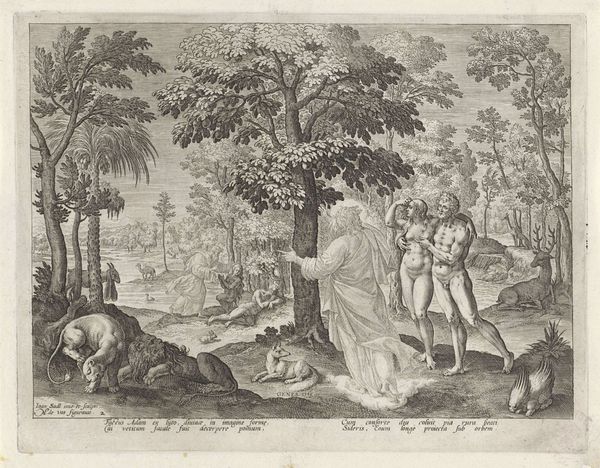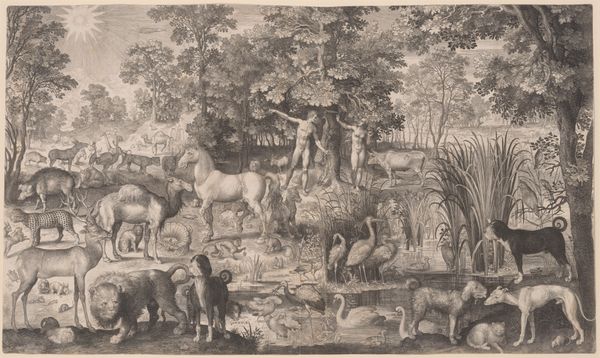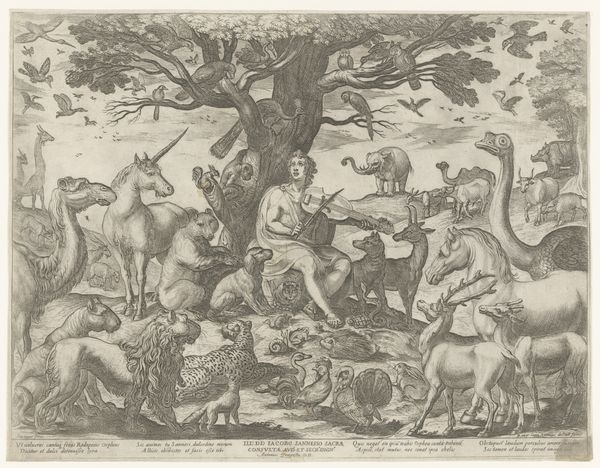
drawing, print, engraving
#
drawing
#
baroque
# print
#
landscape
#
figuration
#
genre-painting
#
history-painting
#
engraving
Dimensions: Sheet: 12 3/4 × 10 1/8 in. (32.4 × 25.7 cm)
Copyright: Public Domain
Curator: I’m struck by how utterly dejected the central figure appears in this 17th-century engraving, "The Prodigal Son," by Pieter de Jode II. There’s this overwhelming sense of resignation emanating from the work, wouldn’t you agree? Editor: Absolutely. De Jode's piece illustrates a pivotal moment, placing the biblical parable of the Prodigal Son within the context of socio-economic disparities. His downcast posture isn't simply a personal woe; it signifies the humiliation of being systemically disenfranchised, rendered akin to the livestock he tends. Curator: Right, the desperation is palpable! Surrounded by swine, kneeling, staff abandoned, as if hope itself is a burden he can no longer bear. It is, at once, heart-rending and slightly absurd—aren't pigs supposed to be joyous creatures? But in de Jode's world, even they feel heavy. Editor: Their very presence critiques the social contract: a son degraded to a state where he's envious of animals fed while he starves reflects the gross imbalance of resources, highlighting a society built on inequity and sustained through dispossession. It compels us to think about the role that guilt plays when we return asking to be welcomed, back into societal structures that marginalized us in the first place. Curator: And it’s executed so skillfully. The light seems to press down, making everything heavier, almost suffocating. Do you think he's actually repenting, or just desperately hungry, trying to get any work? It feels less about religious awakening and more about survival. Editor: Indeed. It’s about existing within power structures designed to demean. Repentance, then, might not be contrition but the strategic invocation of familiar narratives – here, the family – to renegotiate his survival within that dominant framework. This isn't only a religious artwork, but one grappling with proto-capitalistic dispossession. Curator: It feels timely. De Jode, through "The Prodigal Son," has created an image that resonates far beyond its biblical origins—echoing struggles that continue today. It feels remarkably… intimate, in a way? Editor: And urgent, demanding that we interrogate how societies perpetuate cycles of destitution and shame, all the while peddling salvation narratives. The landscape bears witness not only to one man's individual downfall but to our collective complicity.
Comments
No comments
Be the first to comment and join the conversation on the ultimate creative platform.
